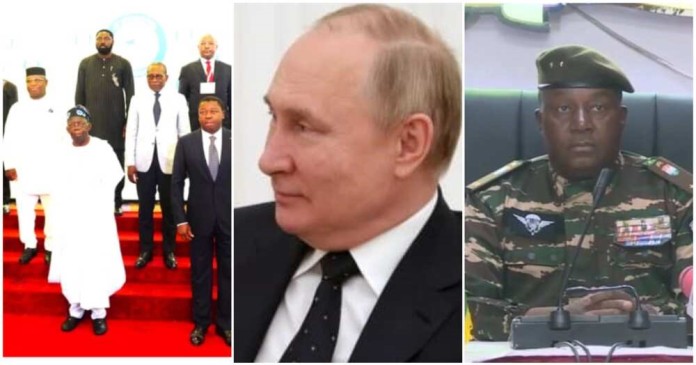By Amin Kef (Ranger)
The political turmoil in Niger intensifies as the Economic Community of West African States (ECOWAS) prepares to deploy a standby force, raising the specter of military intervention. However, Russia’s strong warning against such action has cast doubt on the effectiveness of this move and the potential consequences for the Sahel region.
Since the military coup that unseated President Mohamed Bazoum on July 26, 2023, Niger has been thrust into a state of uncertainty and unrest. The coup triggered widespread protests and international concern over the region’s stability.
Taking a proactive stance, ECOWAS held an extraordinary summit on August 10, 2023, under the leadership of President Bola Ahmed Tinubu of Nigeria. The summit was attended by heads of state and representatives from member countries, as well as dignitaries from across Africa. The focus of the summit was to address the escalating crisis and deliberate on strategies to restore constitutional order in Niger.
ECOWAS’s response included imposing various punitive measures, such as border closures, travel restrictions, and asset freezes. The activation of the ECOWAS Standby Force was also announced, with discussions centering on the potential use of military intervention to reinstate President Bazoum.
However, Russia’s intervention added a layer of complexity to the situation. The Russian foreign ministry issued a stark warning against military action, cautioning that it could lead to an extended conflict and destabilize the Sahel region at large. While Russia did not formally endorse the coup, its strong stance against ECOWAS’s potential military intervention underscores the high stakes involved.
The United States, a vocal supporter of restoring President Bazoum to power, has expressed concerns over the situation. The presence of the Wagner mercenary group, known for its involvement in various global conflicts, further complicates the matter. While not explicitly advocating for military intervention, the US called for the junta to relinquish power and allow democratic governance to be reinstated.
Amid these international dynamics, Niger’s future remains uncertain. President Bazoum’s continued detention raises human rights concerns, with reports suggesting he and his family are being subjected to harsh conditions. As ECOWAS deliberates between diplomatic resolution and military intervention, the world watches with bated breath, mindful of the potential far-reaching implications for Niger and the broader region.




